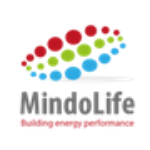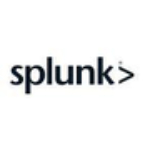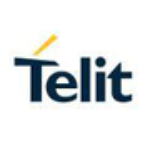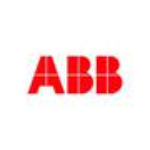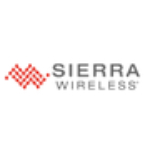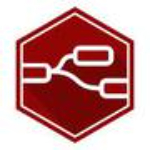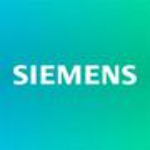TechnologyCounter provides genuine, unbiased real user reviews to help buyers make informed decisions. We may earn a referral fee when you purchase through our links, at no extra cost to you.
List of 15 Best Industrial Iot Software
Showing 1 - 15 of 24 productsAWS IoT SiteWise is a software designed for connecting, organizing, and analyzing industrial data at scale. With its advanced capabilities, businesses can unlock critical insights, increase operational efficiency, and drive overall growth. See how AW...Read AWS IoT SiteWise Reviews
InfiConnector is a dynamic software designed to revolutionize your connectivity process. With its user-friendly interface features, InfiConnector streamlines your connections, making it a must-have for businesses and individuals alike. Say goodbye to...Read InfiConnector Reviews
MindoLife is a software that is transforming the world of personal development. With its user-friendly interface and powerful features, MindoLife is designed to help individuals achieve their goals and improve their overall well-being. Get ready to u...Read MindoLife Reviews
Bekonix is a software solution that streamlines your business processes and boosts productivity. With its user-friendly interface features, Bekonix simplifies complex tasks and helps you achieve your goals. Say goodbye to clunky systems and hello to...Read Bekonix Reviews
Splunk IoT a smarter way to harness the power of your Internet of Things data. With its user-friendly interface analytics capabilities, Splunk IoT revolutionizes how organizations gather, analyze, and utilize their IoT data to make informed decisions...Read Splunk IoT Reviews
ICONICS IoT, the innovative software solution that transforms businesses by connecting people, processes, and data in real-time. With its advanced technology and streamlined interface, ICONICS IoT empowers companies to make data-driven decisions, imp...Read ICONICS IoT Reviews
Telit deviceWISE is a leading IoT platform that connects and manages devices, data, and applications to automate and optimize your business operations. With its user-friendly interface and powerful capabilities, deviceWISE streamlines your processes,...Read Telit deviceWISE Reviews
ABB Ability is a all-in-one digital solution designed to transform the way businesses operate. With its advanced technology and user-friendly interface, ABB Ability offers a seamless is a experience for businesses of all sizes. Say goodbye to complex...Read ABB Ability Reviews
Sanmina 4.0 is a software that streamlines and enhances every aspect of your business operations, empowering you to stay ahead in todays dynamic market. With its advanced features interface, Sanmina 4.0 simplifies complex processes and enables effici...Read Sanmina 4.0 Reviews
Octave is a open-source software that brings the efficiency and flexibility of MATLAB to the masses. It offers a user-friendly interface and a wide range of mathematical functions and tools for data analysis and visualization. With Octave, users can...Read Octave Reviews
Say goodbye to complicated programming and hello to Node-RED, a user-friendly visual tool that makes building and automating digital workflows a breeze. With its drag-and-drop interface and extensive library of nodes, even non-technical users can eas...Read Node-RED Reviews
Siemens Industrial IoT is a advanced software solution that revolutionizes industrial processes and maximizes efficiency. This innovative technology leverages the power of data and automation to connect machines, systems, and processes, driving unpar...Read Siemens Industrial IoT Reviews
PLVision IoT provides innovative software solutions that enable businesses to harness the full potential of the Internet of Things. With a team of experienced professionals, PLVision IoT works towards creating custom IoT solutions to address specific...Read PLVision IoT Reviews
SynSaber is a software solution for all your business needs. With its advanced features and user-friendly interface, SynSaber streamlines processes, increases efficiency, and boosts productivity. Say goodbye to manual tasks and hello to a more stream...Read SynSaber Reviews
Bridgera IoT is a software that is transforming the world of technology and connectivity. With its advanced features and user-friendly interface, this innovative platform is paving the way for seamless integration of the Internet of Things (IoT) into...Read Bridgera IoT Reviews
- What Is Industrial IoT Software?
- Top Reasons Why Businesses Need Industrial IoT Software?
- What Are the Top Key Features of Industrial IoT Software?
- What Are the Top Benefits of Industrial IoT Software?
- What Are the Steps to Choose the Right Industrial IoT Software?
- What Are the Types of Industrial IoT Software for Different Industries?
- What Are the Technology Trends for Best Industrial IoT Software?
- What Are the Deployment Options for Industrial IoT Software?
What Is Industrial IoT Software?
The Industrial Internet of Things (IoT) software is a software solution specifically developed to facilitate the monitoring and enhancement of corporate processes by leveraging interconnected devices.
The utilization of this technology allows organizations to have immediate access to data generated by their machinery and equipment, facilitating the acquisition of valuable insights that can inform and enhance decision-making processes. The utilization of IoT software also enables individuals to effectively control and automate activities with improved efficiency.
The program possesses a wide range of applications, encompassing predictive maintenance, equipment monitoring, asset tracking, and production optimization. The utilization of best Internet of Things software enables organizations to conduct data analysis derived from sensors and interconnected devices, facilitating the identification of patterns and trends.
This analysis aids in the optimization of operational processes inside these enterprises. Additionally, it can be utilized to enhance the quality of products and establish higher safety standards. Top Industrial Internet of Things software ultimately facilitates the enhancement of productivity and reduction of operating expenses for organizations.
The provision of a comprehensive perspective on their data is crucial for facilitating informed decision-making on their machinery and operations, hence enabling the enhancement of process efficiency and accuracy.
Top Reasons Why Businesses Need Industrial IoT Software?
1) Increased efficiency and optimization: The utilization of Industrial Internet of Things software facilitates the capacity of enterprises to observe and enhance the effectiveness of their manufacturing procedures, resulting in cost reduction and resource optimization.
2) Improved efficiency of assets: The utilization of top Industrial Internet of Things software enables the monitoring of machine conditions, facilitating the provision of real-time data regarding their performance and notifying management of potential concerns.
3) Increased production accuracy: The utilization of Industrial Internet of Things software facilitates the monitoring of production accuracy within enterprises, as well as the identification of error trends that may require attention.
4) Automation of repetitive processes: The implementation of the Internet of Things industrial automation has been found to effectively mitigate the requirement for human labor within many industries. This is achieved by enabling firms to automate monotonous tasks, including but not limited to product replenishment and quality control.
5) Reduced downtime: The use of Industrial Internet of Things (IoT) software has the capability to forecast and mitigate the likelihood of expensive periods of inactivity, so enabling enterprises to achieve cost and time savings.
6) Enhanced safety: The implementation of industrial IoT solutions enables the identification and surveillance of safety risks associated with machinery, people, and operational procedures, hence facilitating the establishment of more secure work environments within organizations.
7) Predictive maintenance: The utilization of an industrial IoT platform enables enterprises to proactively predict forthcoming maintenance requirements, hence enhancing the dependability of equipment and substantially minimizing periods of inoperability.
8) Improved supply chain management: The integration of Industrial Internet of Things (IoT) software with pre-existing supply chain management systems enables enhanced transparency and efficiency throughout the entirety of the supply chain, encompassing the stages of manufacturing through to final delivery.
9) Streamlined inventory tracking: The utilization of Industrial Internet of Things (IoT) software facilitates the monitoring of inventory levels and the identification of supply chain segments that require replenishment.
10) Greater customer insights: The software utilized in the industrial Internet of Things has the capability to gather client data from diverse origins, enabling the acquisition of more profound understandings regarding customer behavior and preferences.
11) Enhanced security: Industrial Internet of Things (IoT) software has the capability to offer enterprises sophisticated analytics, hence facilitating the detection and prevention of potentially dangerous behaviors.
12) Improved product quality: The utilization of this software can effectively contribute to the assurance of optimal product quality, thereby guaranteeing that products adhere to the most stringent criteria prior to their distribution to clients.
13) Faster response times: The utilization of Industrial Internet of Things (IoT) software enables firms to employ bottom-up analytics, facilitating prompt decision-making in light of dynamic market situations.
14) Advanced analytics capabilities: The software utilized in the Industrial Internet of Things (IoT) has the capability to gather data from many origins and offer astute analyses to enterprises, so enabling them to make well-informed judgments.
15) Quick adoption of new technologies: The use of the industrial Internet of Things IIoT enables enterprises to expeditiously embrace novel technologies, such as artificial intelligence (AI) or machine learning (ML), in order to attain a competitive advantage.
What Are the Top Key Features of Industrial IoT Software?
1. Data Analysis: The utilization of Industrial Internet of Things (IoT) software facilitates the instantaneous examination of data derived from various origins, hence furnishing valuable understanding into both present and historical operational efficacy.
2. Remote Monitoring: Industrial Internet of Things (IoT) software enables the capability to remotely monitor and manage sites, hence decreasing the necessity for physical site visits.
3. Automation: The use of automated task execution obviates the need for manual procedures in order to do routine everyday tasks.
4. Scalability: The software for the Industrial Internet of Things (IoT) has the capability to be expanded or adjusted to accommodate the requirements of companies regardless of their scale or size.
5. Security: The establishment of a secure infrastructure is of utmost importance, and the utilization of industrial IoT offers heightened degrees of security through the implementation of encryption, authentication mechanisms, and role-based access control.
6. Connectivity: The software for the industrial Internet of Things facilitates dependable and secure connectivity between various devices, equipment, sensors, and the underlying back-end systems.
7. Real-time Insights: Industrial Internet of Things (IIoT) software facilitates the acquisition of real-time insights pertaining to operational efficiency, product utilization, and process management.
8. Predictive Maintenance: Predictive analytics plays a crucial role in the identification and anticipation of possible issues, hence mitigating their transformation into problems. This proactive approach effectively minimizes downtime and enhances safety measures.
9. Reporting and Documentation: The software used in the IIoT industrial Internet of Things domain offers robust capabilities in terms of reporting and documentation, hence facilitating enhanced data visualization and insights on a broader scale.
10. Platform Integration: Industrial Internet of Things (IoT) software facilitates the compatibility and integration of systems with other pre-existing platforms by utilizing application programming interfaces (APIs) that adhere to established standards.
What Are the Top Benefits of Industrial IoT Software?
1. Increased efficiency: The utilization of the industrial Internet of Things IIoT empowers enterprises to enhance their productivity through the application of predictive analytics and machine learning techniques, hence automating maintenance activities and enhancing operational procedures.
This practice leads to a decrease in unproductive periods and enhances the overall effectiveness of operations.
2. Enhanced data gathering and analysis: Industrial Internet Things enables enterprises to enhance their data collection and analysis capabilities. This facilitates the identification of trends and patterns that can be leveraged to enhance production processes.
3. Improved product quality: The implementation of industrial Internet of Things (IoT) software enables firms to enhance and uphold elevated levels of manufacturing quality. Enhanced data collection and analysis techniques are employed to facilitate the attainment of superior quality control measures.
4. Improved customer experience: The use of Industrial IoT solutions enables clients to benefit from enhanced levels of personalized service and an improved overall customer experience.
This objective is accomplished through enhancing communication with clientele, obtaining deeper customer insights, and implementing more precise monitoring of the customer experience.
5. Enhanced security: The utilization of Industrial Internet of Things (IoT) software has the potential to enhance security measures by facilitating enhanced monitoring and detection of security incidents and threats.
This measure aids in the mitigation of potential risks, the minimization of occurrences, and the safeguarding of both organizational and client information.
6. Improved scalability and cost-effectiveness: The utilization of Industrial Internet of Things (IoT) software has been found to effectively mitigate expenses, enhance scalability, and expedite the process of infrastructure construction.
This facilitates the attainment of greater outcomes by enterprises while minimizing resource utilization and enhancing return on investment (ROI).
What Are the Steps to Choose the Right Industrial IoT Software?
1. Assess your needs: The initial stage in the selection of an appropriate industrial IoT platform involves identifying the industrial processes that require optimization and determining the specific data that necessitates tracking.
The analysis of the current process is of utmost significance in order to ascertain the potential utilization of a software system for enhancing the process's robustness, efficiency, and data-centricity.
2. Consider the solution providers: Conducting research and undertaking a comparative analysis of various Internet of Things industrial automation providers is crucial to addressing the requirements of the industrial process effectively.
The contrasts between these entities can be examined in terms of their respective offers, cost structures, customer service provisions, and scalability capabilities.
3. Evaluate data and security: The careful evaluation of security and privacy considerations is crucial when assessing different software solutions. Please assess the security measures implemented by the vendor to safeguard the collected data, as well as evaluate the efficacy of the system in maintaining data security.
4. Consider resources and scalability: It is imperative to carefully evaluate the requisite resources for software implementation and ensure its scalability aligns with the organization's growth trajectory. It is imperative to evaluate the frequency of software updates and the associated resource and time requirements for their implementation.
5. Test out the product: It is advisable to engage in the evaluation of any available demonstrations provided by the vendors in order to gain proficiency with the interface and ascertain the operation of the software. This will aid in assessing the level of intuitiveness of the software for your team and its suitability.
6. Have a trial period: After the successful installation of the software, it is advisable to fully utilize the trial period, if available. This will assist you in reaching a conclusive determination on the software, and ascertaining its alignment with your specific requirements.
What Are the Types of Industrial IoT Software for Different Industries?
The types of industrial IoT software vary depending on the industry and its needs. Common types of industrial internet things include:
1. Automation Software: Automation software plays a crucial role in facilitating the coordination and control of interconnected devices and processes within an industrial environment.
This technology has the capability to facilitate the execution of many tasks and procedures, including but not limited to data collecting, data processing, and system monitoring.
2. Industrial Analytics: Industrial analytics software is designed to gather and analyze data in order to uncover patterns, enhance operational effectiveness, and identify any irregularities within the system. The utilization of this tool enables the implementation of data-driven strategies to enhance system operations.
3. Asset Management Software: Asset management software is a tool that facilitates the monitoring and administration of an organization's equipment and assets, including interconnected devices.
The utilization of this technology enables the monitoring of performance, the management of maintenance schedules, and the assurance of compliance with safety rules.
4. Cybersecurity Software: Cybersecurity software is employed to safeguard interconnected devices and systems against malicious cyber intrusions. The technology has the capability to identify potential risks, impose limitations on certain resources, and oversee the operation of the system.
5. Industrial Mobility Software: The utilization of industrial mobility software facilitates the development of mobile applications that enable workers to remotely access industrial data and systems irrespective of their location.
This particular software solution facilitates the enhancement of operational efficiency and productivity within organizational settings.
What Are the Technology Trends for Best Industrial IoT Software?
Current developments in the industrial Internet of Things IIoT have been primarily directed at enhancing the efficiency, security, and data-centricity of industrial processes.
The technologies encompassed in this category consist of cloud or edge computing, machine learning, big data analysis, real-time insights, industrial automation, industrial Internet of Things platforms, artificial intelligence, predictive and prescriptive analytics, and blockchain technology.
Cloud or edge computing is employed to facilitate networks of distributed devices, commonly referred to as edge nodes, that are utilized for the purpose of gathering, analyzing, and disseminating data. Cloud computing enables the centralized storage of data, hence ensuring its accessibility in a wide range of circumstances.
Edge computing plays a pivotal role in mitigating the latency inherent in data transmission, curtailing the expenses linked to data hosting, and streamlining the creation and implementation of industrial solutions.
The utilization of Machine Learning and big data analysis empowers firms to leverage extensive quantities of data for the purpose of enhancing operational procedures and acquiring significant insights.
AI-powered solutions have the ability to assist manufacturers in enhancing operational efficiency, anticipating machinery failures, and proposing opportunities for cost reduction and process enhancement. The utilization of real-time data enables organizations to effectively monitor performance, detect possible challenges, and inform decision-making processes.
Industrial automation solutions enhance operational efficiency and minimize the necessity for manual intervention, hence facilitating streamlined workflow inside enterprises. These platforms provide customers the opportunity to view visual representations of their manufacturing process, thus facilitating the monitoring of performance, inventory tracking, and even the anticipation of possible issues.
IoT systems facilitate the interconnection of industrial assets, including machinery, vehicles, and sensors, over the Internet. This technology aids organizations in better monitoring and managing their assets, hence enhancing operational efficiencies.
The utilization of AI-driven predictive and prescriptive analytics enables firms to anticipate forthcoming client behavior and provide pertinent insights into the behavior of distinct customer groupings.
In recent times, there has been a notable increase in the adoption of blockchain technology due to its inherent ability to offer robust security measures for both transactions and data storage through encryption.
This solution aids in safeguarding organizations against cyber threats and has the potential to provide functionalities such as automated payment processing, product tracking mechanisms, and fraud detection capabilities.
What Are the Deployment Options for Industrial IoT Software?
The deployment options for the industrial Internet of things iiot exhibit variability depending on the specific use case and production environment. These options commonly encompass embedded system deployments, on-premise solutions, cloud-based solutions, or a hybrid deployment strategy.
1. The process of embedded system deployments entails the physical connection and direct operation of hardware and software components on industrial machines or devices. This technique is frequently seen as the most secure, as the data remains only within the machine.
2. On-premise solutions entail the installation of software on local devices that are interconnected within an internal network. This approach enables enhanced data management and heightened security measures, albeit at a higher expense.
3. Cloud-based solutions provide a highly scalable and easily maintainable method. The utilization of cloud computing enables enhanced flexibility and facilitates the acquisition of data from many geographical places.
Nevertheless, this practice may expose the system to potential security vulnerabilities due to the frequent transmission of data through cloud-based platforms.
4. The hybrid deployment strategy is characterized by the integration of on-premise components with cloud solutions, enabling enhanced connectivity with cloud services while simultaneously ensuring the retention of sensitive data within the local network.
This choice is frequently seen as the most economically efficient.


